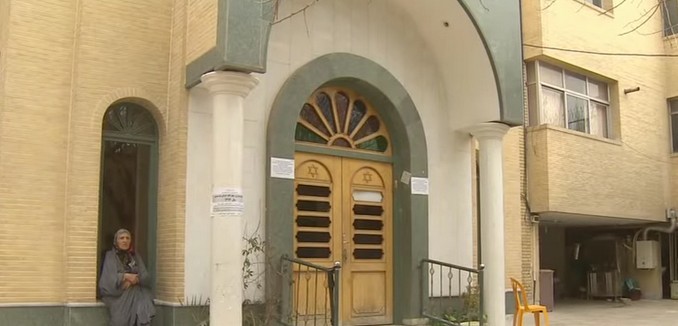Responding to a recent remark by Iranian Foreign Minister Mohammad Javad Zarif boasting of Iran’s “tolerance” of Jews, Shahrzad Elghanayan stated in an op-ed published Wednesday in The Washington Post that the current regime in Tehran “can’t take credit for it.” Shahrzad, who is Jewish, noted that the revolutionary government executed her grandfather following a twenty-minute trial shortly after coming to power in 1979.
Elghanayan provides a brief history of Jews in Iran.
Jews have lived in Iran since 586 B.C. In the 16th century, conservative Shiite scholars and clergy under the Safavid dynasty had restrictions placed on all minorities, including Jews, to bar them from economic activity and to prevent them from passing their “ritual impurity” to Muslims: Don’t open shops in the bazaar, don’t build attractive residences, don’t buy homes from Muslims, don’t give your children Muslim names, don’t use Muslim public baths, don’t leave your house when it rains or snows, don’t touch anything when entering Muslim shops. Jews weren’t protected by the legal criminal system, but they could convert on the spot to save their lives if attacked by Muslims. There were short periods of reprieve here and there but as a whole, life was pretty grim for the next several centuries. (For more on Jewish history in Iran, see Houman Sarshar’s “Esther’s Children.”)
Late in the 19th century, French and British Jews lobbied to establish schools for Jews, and eventually Iranian-Jewish philanthropists, with the help of Israeli organizations, funded a network of schools in the country. After Reza Shah founded the Pahlavi dynasty in 1925, he started a modernizing spree in which Jews participated and prospered. By 1979, according to David Sitton’s study of Sephardic Jewish communities, 80 percent of Iran’s estimated 80,000 to 100,000 Jews were middle class or higher, and 10 percent were part of the economic elite. Jews were not only successful businessmen, but also prominent university professors, journalists and doctors.
Elghanayan’s grandfather was born during the time of relative freedom and “became one of Iran’s most famous industrialists.” But the period of success and prosperity for Jews in Iran would come to an end. Elghanayan recounts that Ayatollah Ruhollah Khomeini campaigned against the reforms instituted by Shah Mohammed Reza Pahlavi, and his rhetoric targeted “Israel, Jews and Baha’is.” As early as 1964, Khomeini, in a speech arguing against the westernization of Iran, mentioned Elghanayan’s grandfather by name.
When he came to power, Khomenei acted on his words.
When Khomeini returned from exile in February 1979 as the head of the Islamic revolution, my grandfather was among the first civilians he went after. On May 9, 1979, my grandfather was executed after a 20-minute trial on trumped-up charges that included being a “Zionist spy.” The Revolutionary Court did not allow my grandfather to have a lawyer. After a firing squad killed him, the new regime stole what he had spent his lifetime building. (Most of the rest of my family had already left Iran by then.) The execution prompted Sen. Jacob Javits (R-N.Y.) to sponsor a resolution condemning human rights abuses in Iran – which would prove to be a key moment in souring diplomatic relations between the U.S. and the new regime.
Elghanayan also noted that corrosive effect of the regime’s anti-Semitic rhetoric. She spoke with an Iranian dissident, who has since fled to Canada, who admitted that he “had hidden anti-Semitic feelings” after being indoctrinated in school.
Elghanayan also takes issue with Zarif’s dubious boast that Iran is home to more Jews in the Middle East than any country outside of Israel. Since the 1979, revolution the Iranian Jewish community has shrunk from an estimated 80,000-10,000 to less than 9,000, according to Iran’s most recent census, while the overall population has more than doubled to more than 77 million. And while Iran’s Jews, who are barred from many positions of influence, may not protest the government’s policies, this is a result of “[knowing] the rules and boundaries of coexistence.”
[Photo: CNN / YouTube ]




